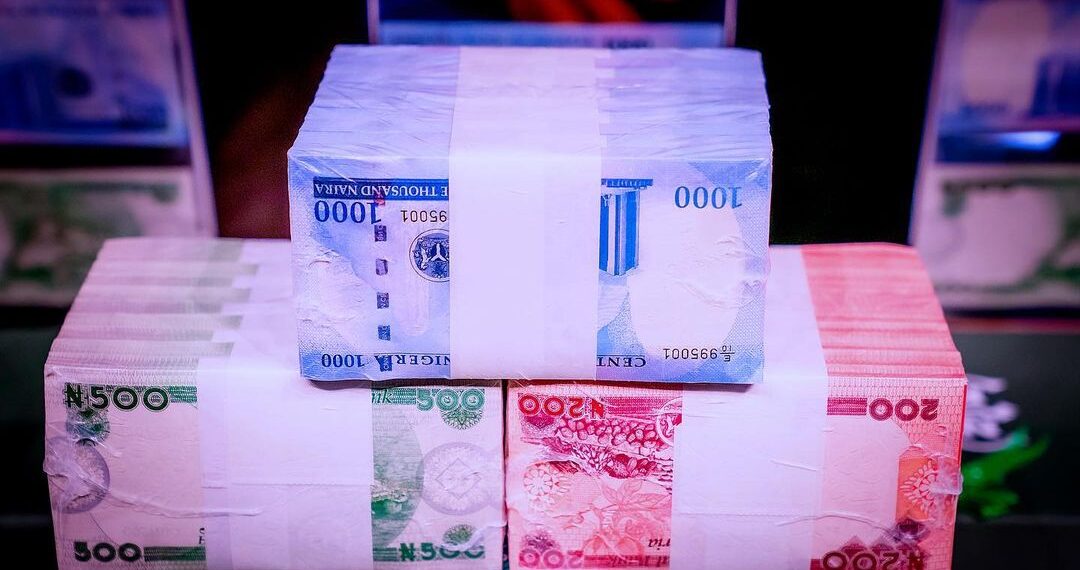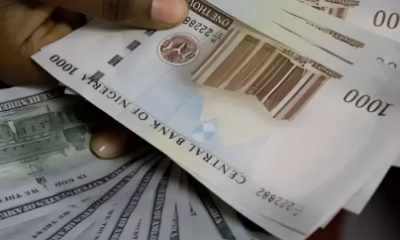Despite the hawkish tightening stance of the Monetary Policy Committee (MPC), Nigeria’s broad money supply (M3) has surged to a new historic high of N95.56 trillion as of February 2024, representing a staggering 79.29 per cent surge from the N53.3 trillion recorded in February 2023, showcasing a substantial year-on-year growth of N42.26 trillion.
According to the Central Bank of Nigeria (CBN) latest money and credit statistics, compared to the preceding month of January 2024, which stood at N93.72 trillion, this represents a 1.96 per cent increase, equivalent to N1.84 trillion.
Nigeria’s Money Supply (M2) also hit historical high of N93.9 trillion in February from a record N92.8 trillion established in January 2024
Broad money supply encompasses both net foreign assets and net domestic assets, painting a holistic picture of the nation’s monetary dynamics, while money supply (M2) represents currency outside banks plus demand deposits and quasi money.
The Monetary Policy Committee of the Central Bank of Nigeria has increased the benchmark interest rate by 400 basis points to a record 24.75 per cent.
READ ALSO: CBN FX intervention responsible for Naira appreciation at parallel, official market—analysts
Addressing journalists at the end of the two-day meeting in Abuja, governor of the CBN, Olayemi Cardoso said the committee voted to adjust the asymmetric corridor around the MPR to +100 to -700 from plus 100 to -300 basis points and raised the cash reserve ratio from 32.5 percent to 45 percent.
This is a lower hike compared to the 400 basis points at 22.75 per cent in the previous month.
The decision announced by the CBN governor, Yemi Cardoso, propels the MPR to its highest point ever, reaffirming the CBN’s aggressive stance on monetary tightening in response to inflationary pressures.
Ms. Emem Usoro, Deputy Governor, Operations Directorate, in her personal statement at the previous MPC meeting in January 2024 stated that broad money and inflation have moved almost in tandem as broad money supply (M3) expanded by 18.25 per cent at the end of January 2024.
READ ALSO: FX rate for Customs’ import duties drops for fifth consecutive time in two weeks
“ This growth was ascribed to a rise in other deposits, transferable deposits, and securities other than shares, by 26.55 per cent, 4.73 per cent, and 99.98 per cent, respectively.
“From the asset side, Net Domestic Asset (NDA) contributed significantly to broad money growth while Net Foreign Asset (NFA) subdued growth in broad money. The steady rise in inflation has resulted in negative real interest rates.”
She also said that inflationary pressures may persist in the near term partly due to a number of factors, such as the lingering impact of PMS adjustments, import costs, exchange rate pass through, and growth in money supply.
While there has been a significant surge in the money supply, the country’s economic growth has been tepid, with Nigeria’s economic growth rate for 2024 projected to be around 2.9 per cent and 3.1 per cent, having one of the slowest growth rates in West Africa.

 Health6 days ago
Health6 days ago
 Entertainment1 week ago
Entertainment1 week ago
 Crime7 days ago
Crime7 days ago
 Comments and Issues1 week ago
Comments and Issues1 week ago
 Football1 week ago
Football1 week ago
 Latest7 days ago
Latest7 days ago
 Comments and Issues1 week ago
Comments and Issues1 week ago
 Comments and Issues1 week ago
Comments and Issues1 week ago













